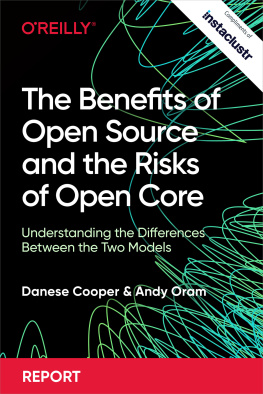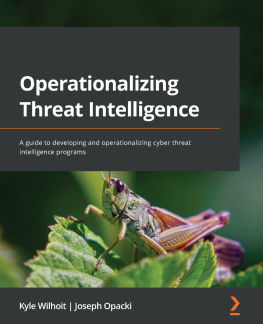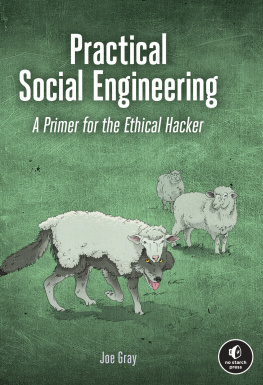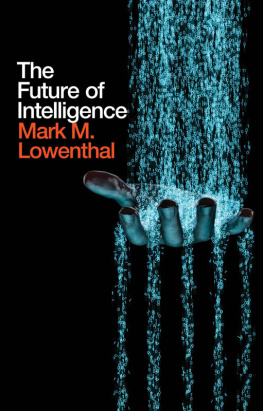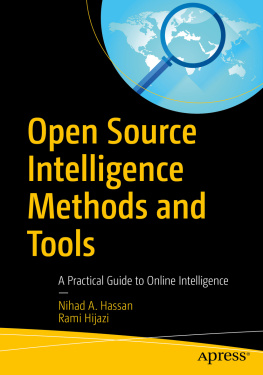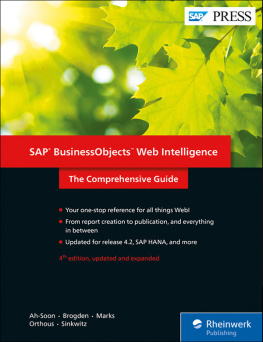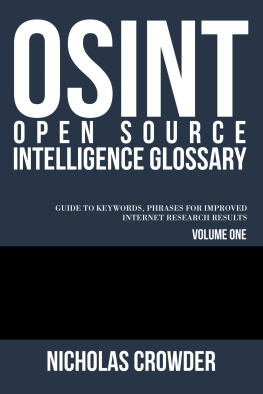Every possible effort has been made to ensure that the information contained in this book is accurate at the time of going to press, and the publisher and the author cannot accept responsibility for any errors or omissions, however caused. Any opinions expressed in this book are those of the author, not the publisher. Websites identified are for reference only, not endorsement, and any website visits are at the readers own risk. No responsibility for loss or damage occasioned to any person acting, or refraining from action, as a result of the material in this publication can be accepted by the publisher or the author.
Apart from any fair dealing for the purposes of research or private study, or criticism or review, as permitted under the Copyright, Designs and Patents Act 1988, this publication may only be reproduced, stored or transmitted, in any form, or by any means, with the prior permission in writing of the publisher or, in the case of reprographic reproduction, in accordance with the terms of licences issued by the Copyright Licensing Agency. Enquiries concerning reproduction outside those terms should be sent to the publisher at the following address:
IT Governance Publishing
IT Governance Limited
Unit 3, Clive Court
Bartholomews Walk
Cambridgeshire Business Park
Ely
Cambridgeshire
CB7 4EA
United Kingdom
www.itgovernance.co.uk
Stewart K. Bertram 2015
The author has asserted the rights of the author under the Copyright, Designs and Patents Act, 1988, to be identified as the author of this work.
First published in the United Kingdom in 2015
by IT Governance Publishing
ISBN 978-1-84928-730-2
PREFACE
Learn the tools and techniques of modern Open Source Intelligence (OSINT) in this authoritative but accessible work, which takes the reader beyond the front page of Google and into a rich new world of investigative possibilities.
Suitable for both novice and seasoned investigators alike, this work introduces the core concepts of OSINT in the information age through a blend of theory and practical exercises. Dealing in-depth with more than 30 freely available OSINT tools, this book seeks to quantifiably build the readers skills within this rapidly emerging area of intelligence and investigative professional practice.
In addition to the introduction of the core tools and techniques, The Tao of Open Source Intelligenceseeks to cut through the baffling array of technical terms often synonymous with the Internet. A rigorous definition of what terms such as Surface, Dark and Deep webs, meta search engines, social media and indexing among others are broken down and their relevance to the investigative process clearly explained.
Theoretical sections mixed with more practical text give a guide to the more complex issues associated with OSINT, such as the operational security, surveillance and counter surveillance in cyberspace and the issues associated with running covert human intelligence sources within the digital realm.
The Tao of Open Source Intelligencerepresents the current state of the art within this field and gives investigators new and old a solid foundation from which to build their own professional practices from.
Whether public or private sector, this work is comprehensive enough to give insight for a broad readership while specific enough to provide genuine guidance on key areas of OSINT professional practice.
ABOUT THE AUTHOR
Stewart K. Bertram is a career intelligence analyst, having spent more than a decade working across the fields of counter terrorism, cyber security, corporate investigations and geopolitical analysis. Holding both a Masters degree in Computing as well as a Master of Letters in Terrorism Studies, Stewart is uniquely placed at the cutting edge of intelligence and investigation, where technology and established tradecraft combine. Stewart fuses his academic knowledge with significant professional experience, having used OSINT on real-world topics as diverse as terrorist use of social media in Sub-Saharan Africa to threat assessment concerning the London Olympic Games. Stewart teaches courses on OSINT as well as practising what he preaches in his role as a cyber threat intelligence manager for some of the worlds leading private sector intelligence and security agencies.
ACKNOWLEDGEMENTS
I would like to thank Chris Evans, ITSM Specialist, Giuseppe G.


